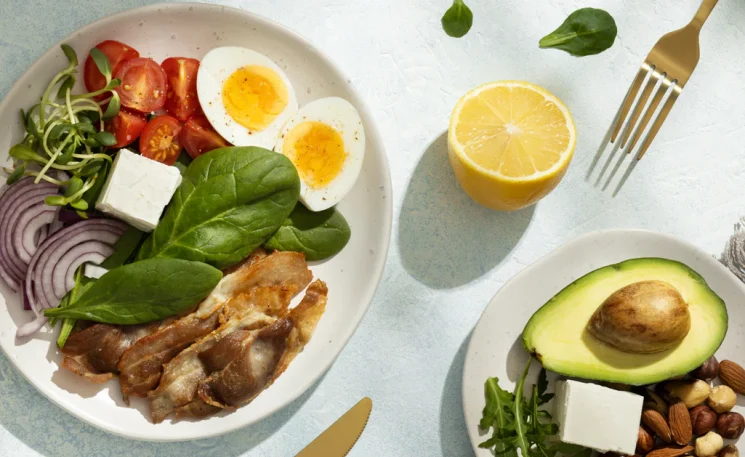Is the Autoimmune Paleo Diet scientifically proven to help autoimmune conditions?
The Autoimmune Paleo Diet (often called the AIP diet) has gained significant attention for its potential to reduce inflammation, heal the gut, and relieve symptoms associated with autoimmune conditions. It’s a nutrition approach inspired by the Paleolithic diet but taken a step further — designed specifically for people with autoimmune issues like Hashimoto’s thyroiditis, rheumatoid arthritis, lupus, and multiple sclerosis. The AIP diet removes foods that are believed to trigger immune reactions and focuses on nutrient-dense, healing foods. But the question remains — is the Autoimmune Paleo Diet scientifically proven to help autoimmune conditions, or is it just another wellness trend? Let’s explore the science, evidence, and real-world impact behind it.
Understanding the Autoimmune Paleo Diet
The Autoimmune Paleo Diet is built on the principle that modern, processed foods and certain natural foods can contribute to inflammation, gut permeability (often called “leaky gut”), and immune dysfunction. The AIP protocol eliminates foods known to irritate the gut or trigger inflammation, including:
- Grains (like wheat, oats, and rice)
- Legumes (beans, lentils, peanuts, and soy)
- Dairy products
- Eggs
- Nightshade vegetables (tomatoes, peppers, potatoes, and eggplants)
- Nuts and seeds
- Coffee and alcohol
- Refined sugars and processed oils
In their place, the diet emphasizes whole, unprocessed, nutrient-dense foods such as:
- Grass-fed meats and wild-caught fish
- Organ meats and bone broth
- Fresh vegetables (except nightshades)
- Fermented foods for gut health
- Healthy fats like olive oil, coconut oil, and avocado
- Herbs and natural seasonings
The idea is to calm inflammation and allow the immune system to reset by removing potential triggers.
The Science Behind the AIP Approach
Scientific research on the Autoimmune Paleo Diet is still emerging, but some promising studies suggest it can indeed help improve autoimmune symptoms. One of the main theories supporting the AIP diet is its impact on the gut-immune connection.
Autoimmune diseases occur when the body’s immune system mistakenly attacks its own tissues. Research has shown that intestinal permeability — or “leaky gut” — may play a role in triggering these autoimmune responses. When the gut barrier is compromised, food particles and toxins can leak into the bloodstream, prompting an immune reaction. The AIP diet seeks to heal the gut lining by removing foods that irritate it and adding those that nourish it.
A 2017 study published in Inflammatory Bowel Diseases examined the effects of the Autoimmune Protocol in individuals with inflammatory bowel disease (IBD). After following the AIP diet for six weeks, participants reported significant improvements in symptoms and quality of life. Another small clinical trial in 2019 found that the AIP diet reduced fatigue, pain, and anxiety in women with Hashimoto’s thyroiditis. While these studies were small, they provide encouraging early evidence that dietary changes can positively impact autoimmune conditions.
Nutrient Density and Immune Support
Another scientific reason the Autoimmune Paleo Diet may help autoimmune conditions lies in its nutrient-rich approach. The diet emphasizes foods high in vitamins A, D, E, and K, as well as omega-3 fatty acids, zinc, magnesium, and selenium — all essential nutrients for immune regulation and tissue repair.
For instance, organ meats and bone broth provide amino acids like glycine and proline, which help support collagen production and gut integrity. Leafy greens and colorful vegetables deliver antioxidants that combat oxidative stress, a common problem in autoimmune diseases. These nutrients work together to reduce inflammation and promote overall healing.
The Role of Lifestyle and Stress Reduction
The AIP protocol is not just about food. It also encourages lifestyle changes such as quality sleep, stress management, and light physical activity — all of which play vital roles in managing autoimmune conditions. Chronic stress can heighten inflammation and suppress immune function, making it essential to pair dietary changes with healthy daily habits.
Many people who adopt the AIP diet also reduce or eliminate stimulants like coffee. For those looking to replace coffee without losing their energy boost, several Coffee Replacement options align with the AIP guidelines. Herbal drinks like chicory root coffee, dandelion tea, or roasted carob provide comforting, caffeine-free alternatives that support digestion and calm the nervous system. Choosing a natural Coffee Replacement can also help regulate cortisol levels, which often fluctuate in people with autoimmune conditions.
Real-World Results and Limitations
Thousands of individuals report feeling better after following the Autoimmune Paleo Diet, with common benefits including reduced joint pain, better digestion, improved energy, and clearer skin. For some, it has even led to remission-like states where autoimmune antibodies decrease, and symptoms virtually disappear.
However, while anecdotal evidence is powerful, scientific validation still requires larger, long-term clinical trials. Critics argue that restrictive diets like AIP can be difficult to sustain and may lead to nutrient deficiencies if not carefully planned. It’s essential for anyone considering the AIP diet to consult with a healthcare provider or nutritionist to ensure they’re meeting their nutritional needs.
Additionally, autoimmune conditions are highly individualized — what triggers one person’s symptoms may not affect another. That means the AIP diet can serve as a framework for discovery rather than a one-size-fits-all cure. Many people use it as an elimination phase, gradually reintroducing foods to identify personal triggers.
Balancing Science and Experience
The Autoimmune Paleo Diet is supported by a growing body of research and countless personal success stories. While it’s not a cure for autoimmune disease, it offers a structured, food-based approach that can help many people reduce inflammation and improve quality of life. The science around gut health, nutrient density, and immune regulation aligns strongly with the principles of the AIP diet, suggesting that it can be an effective complementary strategy to conventional medicine.
- Share

YOU MIGHT ALSO ENJOY
Explore India Like Never Before with Rajasthan and Sikkim Tour Packages
Stephen Romero - January 15, 2026
Unlocking Business Potential with Cloud Servers in India
Stephen Romero - January 15, 2026
Navigating Legal Excellence: Choosing the Best Corporate Law Firms in India
Stephen Romero - January 15, 2026
search
FAST ACCESS
- art&gallery (4)
- Automotive (25)
- beauty (7)
- blog (398)
- Business (718)
- cleening (13)
- clinic (1)
- courier services (4)
- dentel care (6)
- Driving school (3)
- electronics (1)
- events (1)
- food (1)
- forests (11)
- gameing (5)
- Health (27)
- Health & Fitness (218)
- Home & Garden (16)
- Landscaping (1)
- Law (16)
- Lifestyle (11)
- machinery (5)
- Real Estate (9)
- Share Market (15)
- Shopping (5)
- Technology (31)
- tool (2)
- toys (2)
- Travel (43)
- Wedding & Events (334)
must read
How long do braided wigs from Express Wig Braids typically last with proper care?
Stephen Romero - January 16, 2026
Iowa Medical Cannabis Card Online: A Complete Guide to Accessing Iowa Medical Marijuana Card Services
Stephen Romero - January 16, 2026
Explore India Like Never Before with Rajasthan and Sikkim Tour Packages
Stephen Romero - January 15, 2026
Navigating Legal Excellence: Choosing the Best Corporate Law Firms in India
Stephen Romero - January 15, 2026
recent post
ARCHIVES
- January 2026 (79)
- December 2025 (151)
- November 2025 (132)
- October 2025 (105)
- September 2025 (166)
- August 2025 (164)
- July 2025 (150)
- June 2025 (173)
- May 2025 (99)
- April 2025 (1)
- March 2025 (8)
- February 2025 (9)
- January 2025 (8)
- December 2024 (25)
- November 2024 (40)
- October 2024 (11)
- September 2024 (1)
- July 2024 (10)
- June 2024 (11)
- May 2024 (31)
- April 2024 (15)
- March 2024 (19)
- February 2024 (6)
- January 2024 (7)
- December 2023 (11)
- November 2023 (1)
- July 2023 (13)
- June 2023 (21)
- May 2023 (27)
- April 2023 (23)
- March 2023 (16)
- February 2023 (31)
- January 2023 (27)
- December 2022 (11)
- November 2022 (12)
- October 2022 (11)
- September 2022 (11)
- August 2022 (14)
- July 2022 (13)
- June 2022 (19)
- May 2022 (17)
- April 2022 (10)
- March 2022 (12)
- February 2022 (8)
- January 2022 (9)
- December 2021 (19)
- November 2021 (4)
- October 2021 (6)
- September 2021 (4)
- August 2021 (4)
- July 2021 (10)
- June 2021 (6)
- May 2021 (2)
- April 2021 (2)
- March 2021 (45)
- August 2020 (31)
- July 2020 (30)
- June 2020 (29)










